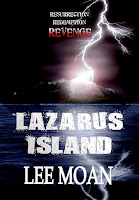Story Goals and the Lost Art of Brevity
TV news just in: US networks have this week cancelled Heroes and Flash Forward. Why? Well, both shows had seen their viewing figures drop significantly. The reasons put forward for their respective slumps were a lack of direction in the former and a lack of brevity in the latter.
I liked Heroes. I watched the boxset of the first season and found it mesmerising. The second season was scrappy, no doubt marred by the writer's strike, and the third season just felt directionless. In any drama or work of fiction viewers need to feel there is a universal end-goal, a sense that the events (and the characters) they are following will reach some satisfying dramatic conclusion. (Soap operas are the only exception to this. They just go on and on and on - which is why I can't watch them - a dramatic phenomena I don't feel capable of explaining or understanding!) Sure, each individual season of any long-running drama has some story arc for viewers to follow, but it's usually just one part of a much longer overarching narrative, which is, of course, the nature of multi-season TV shows. The Fugitive TV series is a classic case: Dr. Richard Kimble is on the run for a murder he didn't commit. Weekly episodes show him dealing with the various dangers of being a fugitive, but the overarching premise is his hunt for the one-armed man who may hold the key to proving his innocence. In the final episode he finds the one-armed man. End of series. When that end-goal is not presented early enough or is too obscure or merely absent, viewers or readers rapidly lose interest.
I believe this is what happened with Flash Forward. Great premise, great opening to the series, but it just didn't get to the point quick enough. An interesting exception to this is Lost, which can also be accused of crimes against brevity. Lost escaped the network axe, although it was close, very close. The makers of Lost avoided the hangman by doing something quite unprecedented in US TV: they promised an ending. They told viewers there would be three more seasons and that it would reach "a shocking and dramatic end". That ending is to be seen tomorrow night (Sunday 23rd May) all around the world, six years after it all began. I remember clearly seeing the first trailer for it back in 2004 and thinking it was going to be a three-part mini-series! How wrong I was! As much as I love Lost, and I really do love it, I truly believe they could have told the story in half as many seasons as they have done. If they had, I believe it wouldn't have experienced the mass exodus of viewers around season three and would have been more widely regarded as a television classic, and not just by the core fans who have seen it through to the bitter end. I can't wait to find out how the whole thing concludes (although I'm not sure if I want to be getting up at 5am on Monday which is the UK time for the finale - I might just wait for the Tuesday night repeat!) but when it is all over and the fat lady has sung, I will still be thinking, "Very good, but they could have told us that in half the time!"
Perhaps the recent cancellation of the shows mentioned above will make programme-makers sit up and take note. There's only so long you can keep your viewers wondering what's going on, before they decide to turn over and watch something else.
I liked Heroes. I watched the boxset of the first season and found it mesmerising. The second season was scrappy, no doubt marred by the writer's strike, and the third season just felt directionless. In any drama or work of fiction viewers need to feel there is a universal end-goal, a sense that the events (and the characters) they are following will reach some satisfying dramatic conclusion. (Soap operas are the only exception to this. They just go on and on and on - which is why I can't watch them - a dramatic phenomena I don't feel capable of explaining or understanding!) Sure, each individual season of any long-running drama has some story arc for viewers to follow, but it's usually just one part of a much longer overarching narrative, which is, of course, the nature of multi-season TV shows. The Fugitive TV series is a classic case: Dr. Richard Kimble is on the run for a murder he didn't commit. Weekly episodes show him dealing with the various dangers of being a fugitive, but the overarching premise is his hunt for the one-armed man who may hold the key to proving his innocence. In the final episode he finds the one-armed man. End of series. When that end-goal is not presented early enough or is too obscure or merely absent, viewers or readers rapidly lose interest.
I believe this is what happened with Flash Forward. Great premise, great opening to the series, but it just didn't get to the point quick enough. An interesting exception to this is Lost, which can also be accused of crimes against brevity. Lost escaped the network axe, although it was close, very close. The makers of Lost avoided the hangman by doing something quite unprecedented in US TV: they promised an ending. They told viewers there would be three more seasons and that it would reach "a shocking and dramatic end". That ending is to be seen tomorrow night (Sunday 23rd May) all around the world, six years after it all began. I remember clearly seeing the first trailer for it back in 2004 and thinking it was going to be a three-part mini-series! How wrong I was! As much as I love Lost, and I really do love it, I truly believe they could have told the story in half as many seasons as they have done. If they had, I believe it wouldn't have experienced the mass exodus of viewers around season three and would have been more widely regarded as a television classic, and not just by the core fans who have seen it through to the bitter end. I can't wait to find out how the whole thing concludes (although I'm not sure if I want to be getting up at 5am on Monday which is the UK time for the finale - I might just wait for the Tuesday night repeat!) but when it is all over and the fat lady has sung, I will still be thinking, "Very good, but they could have told us that in half the time!"
Perhaps the recent cancellation of the shows mentioned above will make programme-makers sit up and take note. There's only so long you can keep your viewers wondering what's going on, before they decide to turn over and watch something else.


Comments